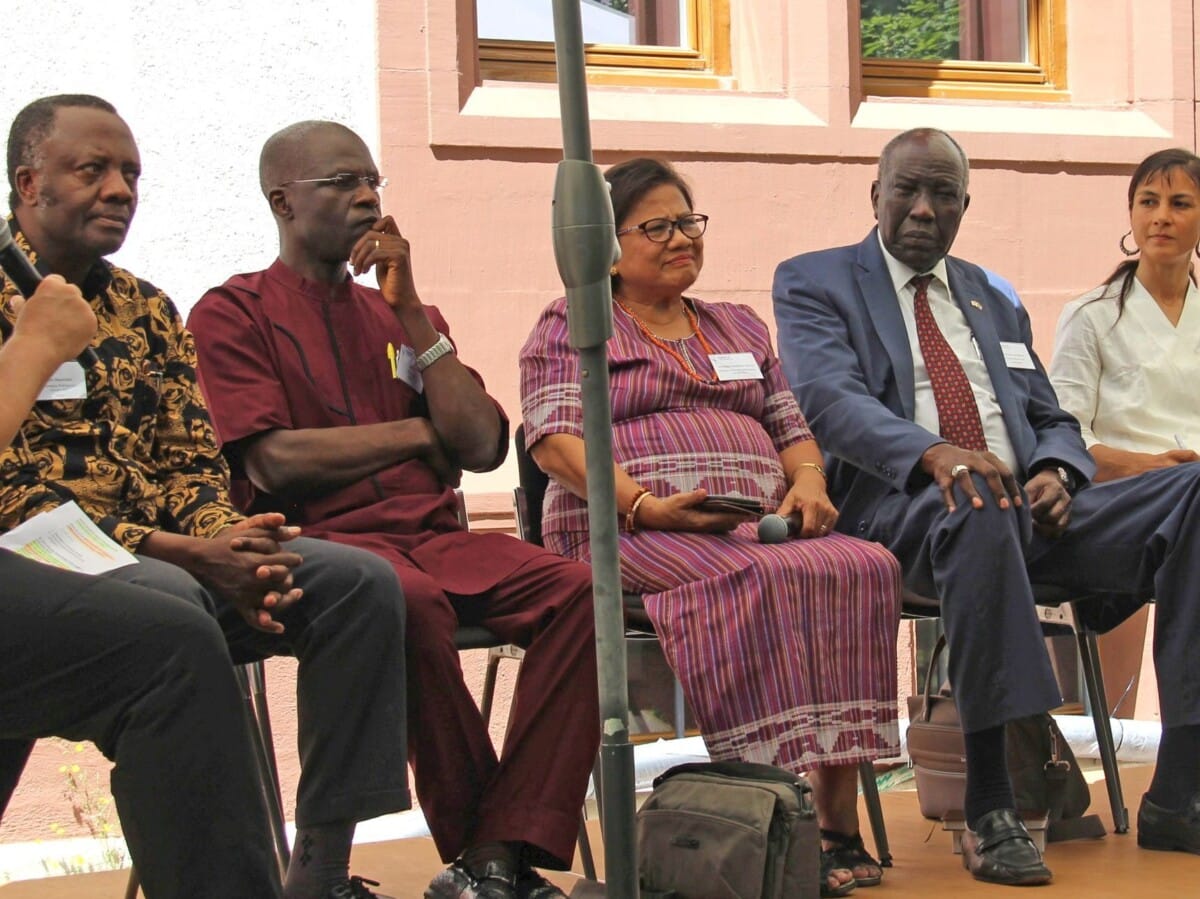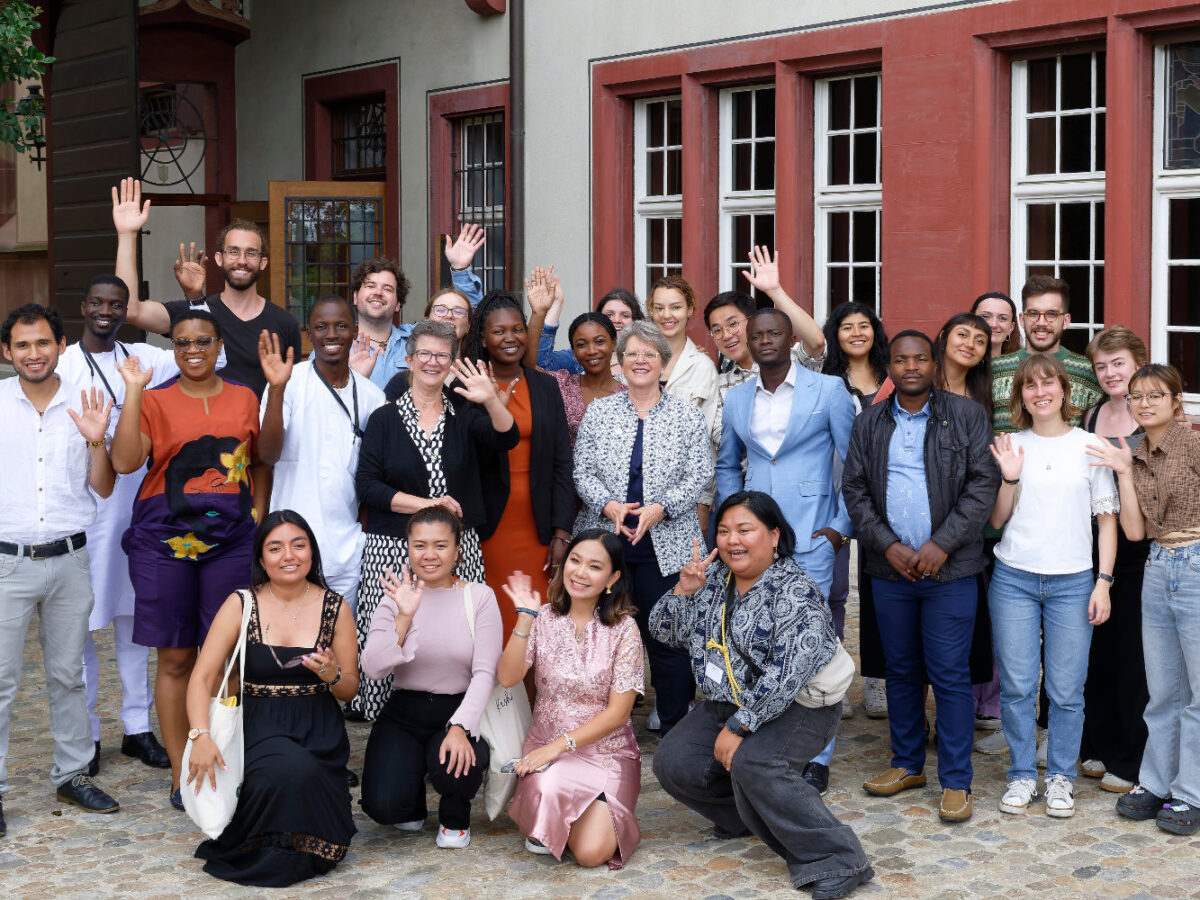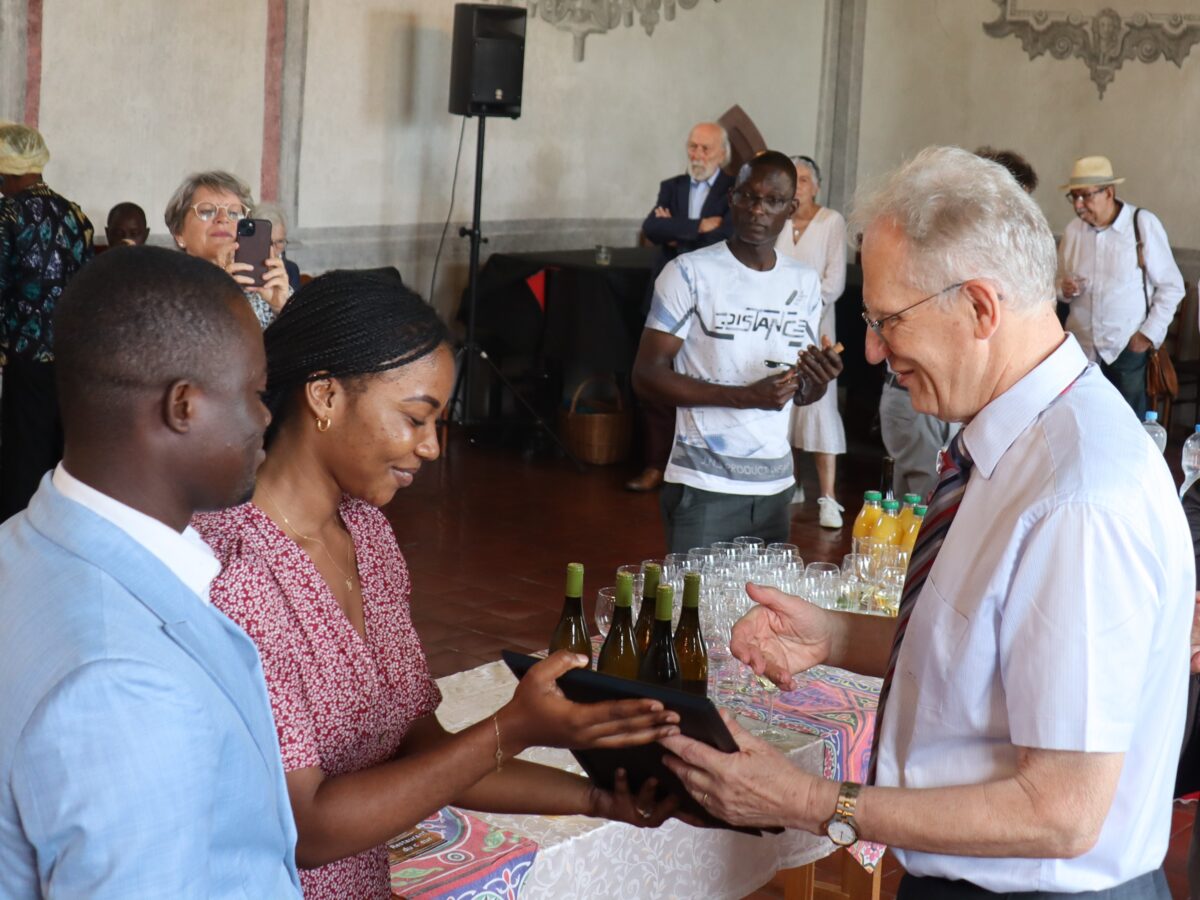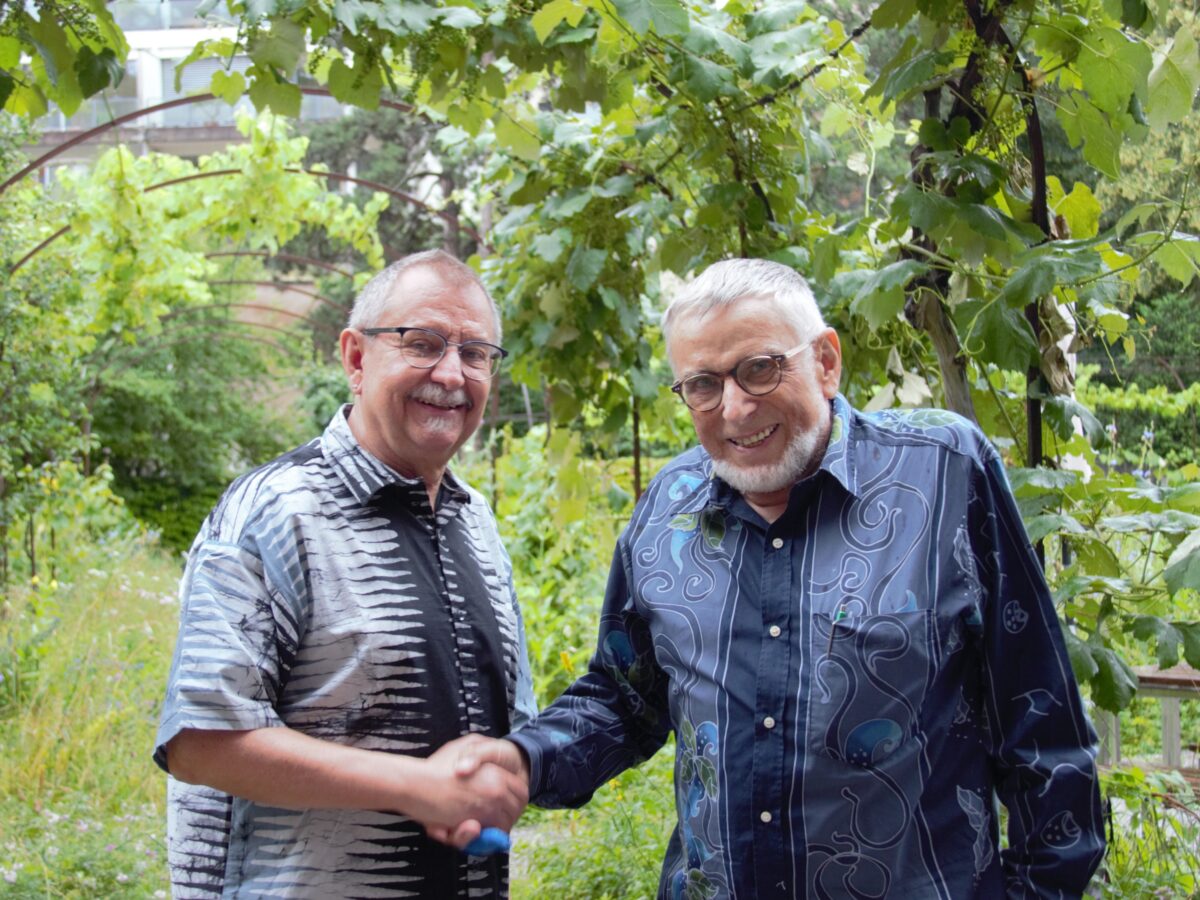Fidon Mwombeki summed up the theme of an entire afternoon in simple words: "People trust the churches. Because the churches - at least in Africa - are present and anchored everywhere," he said at Mission 21's Friendship and Encounter Day in Basel on Saturday, June 29. "Therefore, churches play an important role when it comes to peacebuilding."
Work for peace
Fidon Mwombeki is Secretary General of the "All Africa Conference of Churches.. In his office, he represents 169 African Christian churches with 120 million church members. Not all of them live in crisis regions. "There is an image that Africa is on fire," Mwombeki said on the Mission 21 panel. "In reality, we have less conflict than ever. But in the areas where there is conflict, we need to work on peace."
What does this work for peace look like, and what role can the churches play in it? How can Mission 21 strengthen these churches in conflict regions? These questions were the topic at the Friendship and Encounter Day. They were discussed by panelists from South Sudan, Cameroon, Nigeria and Switzerland. (Detailed information on all speakers can be found in the Event flyer)
Information from different contexts
The panelists brought information and stories from very different contexts: for example, Joel Billi, president of the Nigerian Church of the BrethrenThe report tells of the difficult situation in northeastern Nigeria. The Islamist terrorist militia Boko Haram threatens both Christians and moderate Muslims there.
Henriette Lebang, President of the Reformed Church Federation in Indonesia (PGI), reported how the constitutionally guaranteed freedom of religion in Indonesia is coming under pressure from radical groups. She presented possible solutions: "The problems in the country, be they fundamentalism, environmental problems or poverty, cannot be solved by the churches alone. We are working to build trusting relationships between different groups, especially across religious and faith boundaries. Only if we tackle challenges together can we succeed."
Belief in human rights
Sonya Elmer Dettelbacher was the Swiss representative on the panel. She is a program manager in the "Religion, Politics, Conflict" division of the Human Security Department of the Swiss Confederation and was thus the only non-church speaker. Nevertheless, she likened her department to a "faith-based organization": in her work environment, faith in human rights applied. She acknowledged the role of church representatives in peace work and advocated raising awareness of their influence.
Following the introductory presentations, the numerous listeners were able to engage in in-depth discussions with the speakers in smaller groups. The lively discussions continued afterwards in the garden of the Mission House.
Text: Miriam Glass, Mission 21
► More on peace work in South Sudan
► More on peace work in Indonesia
► More on peace work in Nigeria
► Emergency aid and reconstruction in Cameroon
► Emergency aid and reconstruction in Nigeria






